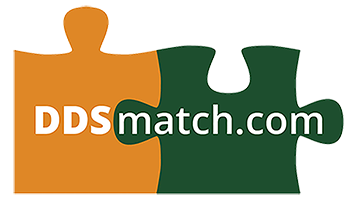But there’s another asset you’ve developed in your journey: Dental Practice value. As a successful dentist, you’ve built a lucrative business that generates consistent income. If you’ve blended critical business components, a potential buyer will favor your practice above the others available in your area. Last month we discussed overhead factors that impact the profitability and value of your practice. In addition, these three main areas need continuous focus before selling your dental practice:
Operations: What elements affect the patient experience and support excellent service? They include staffing, scheduling, managing your supplies, and more.
Branding and Marketing: How uniform is your strategy across digital and physical channels? This encompasses promoting your practice internally and externally to gain and retain patients.
Financial Management: Are you aware of your fixed and variable expenses, objectives for overhead, and profit margins? This encompasses daily monitoring of your metrics and revenue and expenses reports.
Methods To Determine Your Dental Practice Value
The value of your practice can be determined through multiple methods, and a comprehensive evaluation can significantly impact your ultimate exit strategy. You need to examine the elements that influence your practice’s worth, and dependable sources can ensure you have accurate information. In the current climate, many practices receive offers from DSOs without asking for them. A number can look enticing, but these offers are usually not favorable for you. A foundational knowledge of popular methods provides you with relevant questions to ask and optimizes the worth you’ve generated.
Take these three methods employed in a valuation analysis into account when asking, “What can I sell my dental practice for?”:
Market-Based Method: The value of the practice is estimated to be between 50-85% of the previous year’s revenue. This calculation is a rough approximation influenced by various factors and serves merely as a starting point for further analysis. If a comprehensive evaluation indicates you are on the low end of this estimate, it’s often valuable to identify areas for improvement in your practice to enhance its worth.
Net Asset Method: The net asset approach balances the worth of all tangible assets, such as equipment, computers, furniture, and intangible assets, like practice reputation. In this method, many practices discover that most of their value is in their reputation, with 80-85% of the value often assigned to it. However, net asset evaluations can be subjective, as it’s challenging to quantify intangible assets. Viewing this as a supplementary method to other evaluation techniques is advisable.
Income-Based Method: The actual value of a business typically correlates to its cash flow, the level of investment risk, and the return on investment the buyer anticipates. Most well-informed buyers and sellers, including DSOs, typically opt for the income-based method to determine the practice value accurately. This method is based on capitalized earnings or discounted cash flows and provides a dependable approach to determining the fair market value of many dental practices.
Income-based evaluations take into account the pre-tax cash flow of the practice and are computed in two ways:
-
Capitalized Earnings Method — The fair market value of a practice is determined by dividing the average of the last few years’ incomes by a capitalization rate. The standard cap rate in the industry ranges from 15% to 30%, with most practices on the higher end of the spectrum.
-
Discounted Cash Flows Method — The income for the next ten years of the practice is projected, and the present value of the total revenue is calculated in this method. A valuation specialist determines the annual growth rate of collections and expenses and adjusts it by the cost of capital and risk premium factor.
Your Dental Practice Value Deserves Expertise
It’s crucial to consider the specific features of your practice to arrive at an accurate valuation. There are many factors that may impact a final value, including the current insurance relationships and payor mix. For example, a buyer may not be able to establish the same fee schedule that the seller had with an insurance company, and that could immediately impact revenue. You deserve a comprehensive understanding of these factors to value your dental practice accurately.
When considering the essential question, “What do dental practices sell for,” an expert in dental practice valuation can help you consider all the relevant data and arrive at a fair market value for your entity. Specialists in regional transitions are proficient in evaluating practices using a careful balance of factors to achieve desired valuation results.
DDSmatch understands the keys to selling dental practices and assists dentists by evaluating the enterprise from all perspectives. This process helps determine value, the best timing for an exit, and various options for planning your future. We utilize only Certified Valuation Analysts from Blue & Company to exhaustively assess your practice with a third-party perspective trusted by all parties. These experienced Certified Public Accountants with expertise in evaluating medical and dental practices set the stage for a profitable exit.
Get in touch today to discuss your practice and plans for the next phase of your journey. We’ll help you explore your options and guide you through the practice valuation process to achieve the maximum value you’ve worked to create.

